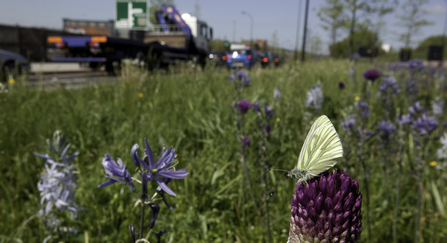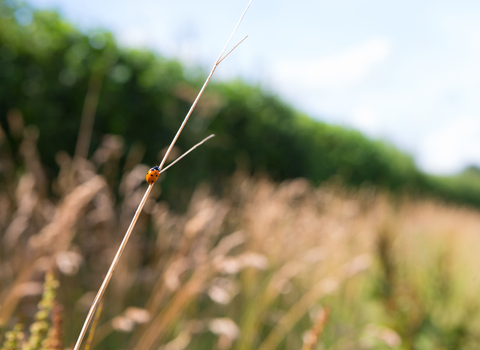For decades, building development has been a significant cause of nature loss. The new legal requirement in England for Biodiversity Net Gain (BNG) offers the potential to contribute to nature’s recovery.

Biodiversity Net Gain explained
What is biodiversity net gain?
Biodiversity Net Gain is an approach to land management that aims to deliver measurable improvements for nature by creating or enhancing wildlife habitats, hedgerows and rivers and streams, in association with a new development.
The Wildlife Trusts have actively contributed to the evolution of the Biodiversity Net Gain approach, with a focus on achieving the highest possible standards for wildlife.
How will Biodiversity Net Gain affect businesses?
The new Biodiversity Net Gain regulations came into effect in early 2024. Developers in England must deliver a minimum 10% increase in biodiversity for new developments, managed for at least thirty years.
For Town and County Planning Developments, this came into effect in February 2024, small sites from April 2024, and will come into effect for Nationally Significant Infrastructure Projects (NSIPs) from late 2025. This requirement can be achieved through the development of nature on the development site itself, through the development of nature at other sites (see below), or, as a last resort, through the purchase of statutory BNG credits from the Government.
Guidance on Town and Country Planning development sites can be found here, and guidance on small development sites can be found on Gloucester City’s website here.

Wild flower planting in urban setting by Paul Hobson

Ben Hall/2020VISION
Can GWT help developers deliver off-site Biodiversity Net Gain?
It is not always possible to deliver Biodiversity Net Gain on-site. In Gloucestershire, GWT worked with the Local Nature Partnership and Local Authorities to establish the Gloucestershire Nature and Climate Fund (GNCF), to help make sure that off-site biodiversity gains stay within the county.
GNCF is in a unique position to provide offsite habitat compensation that aligns with local green infrastructure plans and the Nature Recovery Network.
GNCF are working with landowners across the county, to identify a range of habitats that have the potential to support nature recovery across Gloucestershire and more widely. Please visit GNCF’s website for more information.
Our ecological consultancy, Wild Service, can also undertake Biodiversity Net Gain (BNG) assessments for development projects and rewilding projects. More information can be found here.

